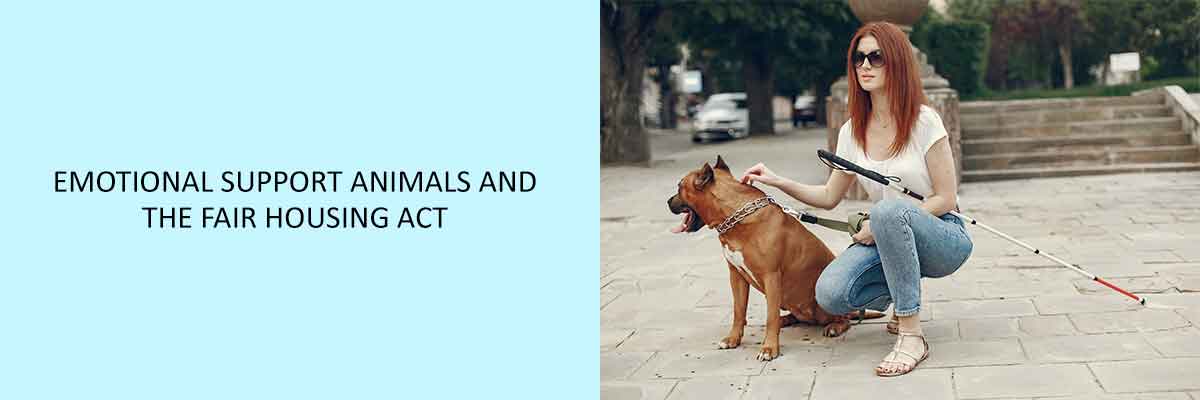The Fair Housing Act is a federal law that prohibits discrimination against tenants with disabilities. The FHA bases its definition of a disability on the definition of a disability in Section 504 of the Rehabilitation Act of 1973. Under Section 504, a person has a disability if they have a physical or mental impairment that substantially limits one or more major life activities.
People with disabilities who rely on emotional support animals (ESAs) may need to give up their emotional support animal if they want to move to a new apartment. Owners or managers of housing communities may ask tenants for proof that a doctor or mental health professional has determined that living with an emotional support animal is an “assistance animal” or “reasonable accommodation” that will “mitigate the effects of their disabilities.”
Fair Housing Act Recognizes an Emotional Support Animal (ESA) as an Assistive Aids
The Fair Housing Act, Section 5 identifies an Emotional Support Animal (ESA) as an assistive aid. In short, the Fair Housing Act recognizes an “assistance animal” as an “assistive device” and provides additional protection for persons with disabilities. An emotional support animal (ESA) is a companion animal that a medical professional has determined provides benefit for an individual with a disability. The Fair Housing Act does not specifically mention emotional support animals. However, the Act does mention service animals, which are defined as dogs that are individually trained to do work or perform tasks for people with disabilities. (The tasks performed by a service animal must be directly related to the person’s disability.) In addition, the Act states that discrimination against a person with a disability violates the Act if the person is using a service animal. The Act also allows for emotional support animals to be covered under the definition of a service
The FHA, as amended in 1988, defines an “assistive animal” as an animal that works, provides assistance, or performs tasks for the benefit of a person with a disability, or provides emotional support that alleviates one or more identified symptoms or effects of a person’s disability.
The Fair Housing Act ensures that landlords are not permitted to discriminate against tenants who have ESAs that help them cope with mental illnesses. However, landlords have a right to ask for evidence that the animal is, in fact, an emotional support animal that provides comfort to a tenant with a mental illness.
Documents Required for an Emotional Support Animal
Under the FHA, a landlord has the liberty to ask for proper documentation for the Emotional Support Animal. The document for ESA comes in the form of an ESA letter from LHCP (licensed healthcare professional). Licensed health care professionals can include the following:
- Licensed counselors
- Licensed therapists
- Social workers
- Physicians
- Physician Assistants
- Nurse Practitioners
- Psychiatrists
- Psychologists
To know more about Emotional Support Animal (ESA) and the Fair Housing Act, attend the Compliance Prime webinar.


